
Please rotate your mobile for a better view
Wormopedia - Whipworms


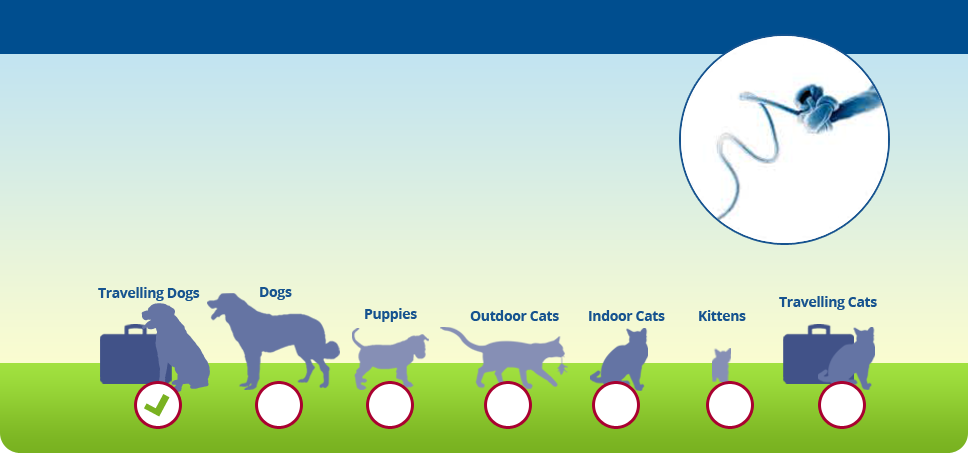
Whipworm (Trichuris vulpis)
Whipworm Trichuris vulpis only affects dogs. It’s relatively rare in the UK, and because it takes a large amount of eggs to cause an infection, whipworm tends to only be found where large numbers of dogs cohabitate, such as a kennels.
Whipworm eggs can be found in the faeces of infected dogs and caught if other dogs then swallow them.
Whipworm eggs can be found in the faeces of infected dogs and caught if other dogs then swallow them.
- AT RISK -
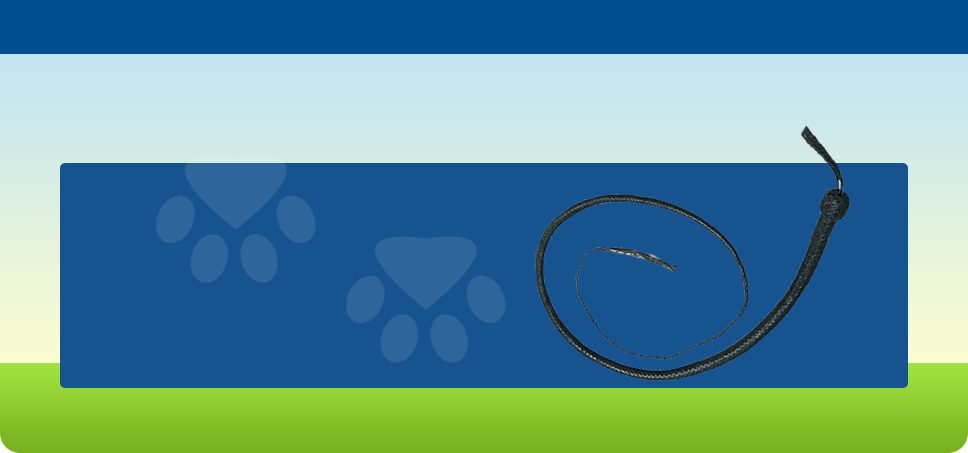
Whipworm (Trichuris vulpis)
The name whipworm refers to the shape of the worm; they look like whips with wider ‘handles’ at the posterior end.

Whipworm (Trichuris vulpis)
Symptoms
If the infection is heavy your dog may suffer from diarrhoea.
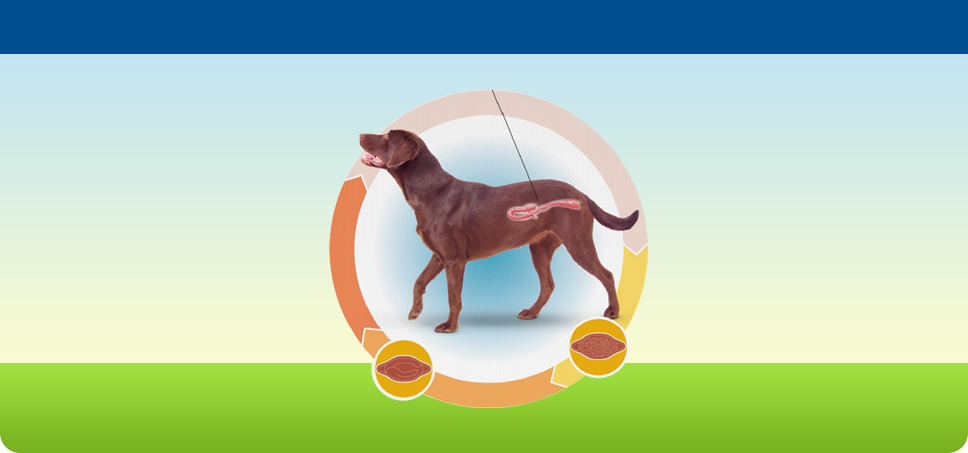
Whipworm (Trichuris vulpis)
Lifecycle...
Adult worms lay eggs in large intestine
Embryonated eggs ingested by dog
Embryonated eggs can survive for years in the environment
Embryonated eggs with infective first larvae in faeces
Eggs are passed in faeces
Eggs embryonate
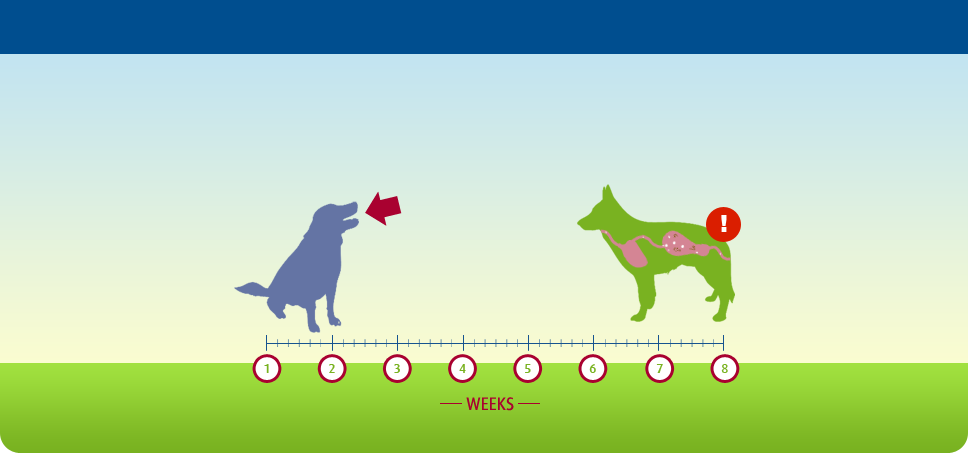
Whipworm (Trichuris vulpis)
Infection stages
It can take about 8 weeks from the time of ingesting the parasites eggs to the time it starts to affect your dog’s health.
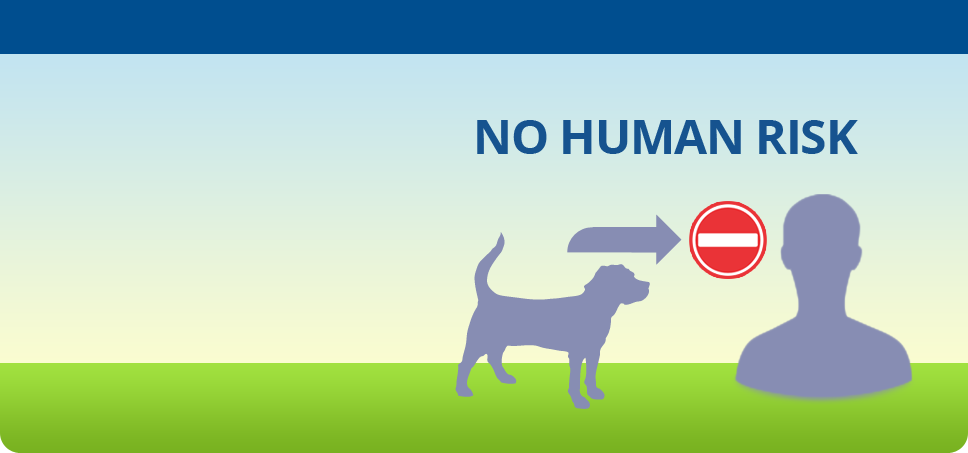
Whipworm (Trichuris vulpis)
Risk to humans
Fortunately whipworm is one parasite humans can't pick up.

Whipworm (Trichuris vulpis)
Spread in Europe
Although relatively rare in the UK, whipworm is more prevalent in Europe so do talk to your vet if you plan to travel with your dog.

Whipworm (Trichuris vulpis)
How to get rid of them
Whipworm is one of the many parasites a vet strength wormer can help to get rid of. Talk to your vet about it if your dog is going to spend time in a confined area, such as kennels, with other dogs.




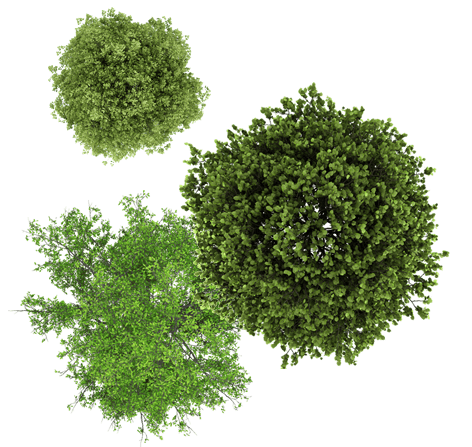
this...